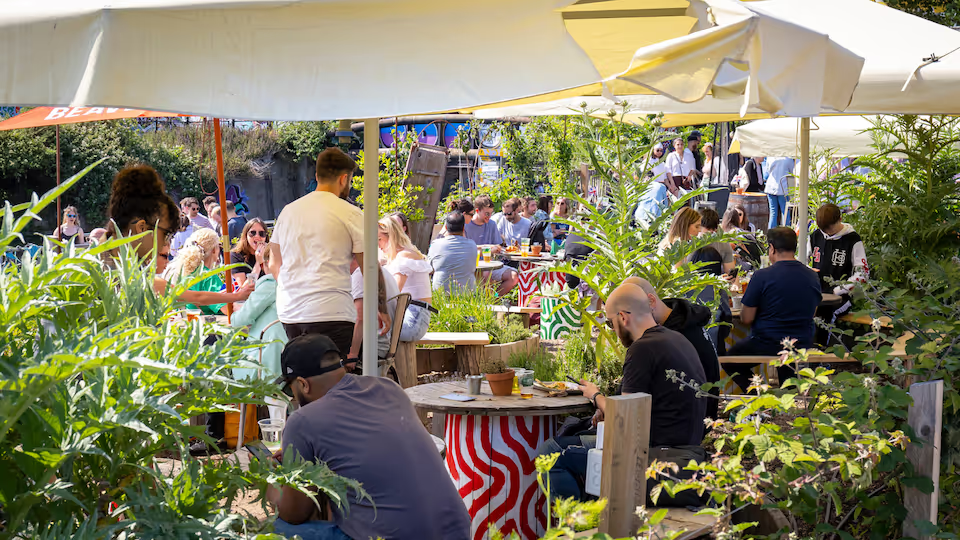
Barge East is not just any restaurant, but an impressive reincarnation of a 120-year-old barge. This former Dutch vessel, now a testament to Hackney's sustainable endeavours, serves dishes that go hand in hand with the earth from which they came and now are also served in Notpla seaweed coated takeaway boxes.
We wanted to find out more about Barge East and its sustainable practices, so we made our way over and had the pleasure of chatting with head chef, Stefano Camplone.
It all began with three childhood friends who had a vision for a sustainable and local floating bar and restaurant in 2017. They purchased a 120-year-old barge in Holland and embarked on a journey to bring it to the U.K. After six months of waiting for the right weather conditions and necessary paperwork, the barge finally arrived in Hackney Wick. With their passion and determination, they spent a week building their dream establishment, transforming the barge into a unique and environmentally conscious drinks and dining destination.
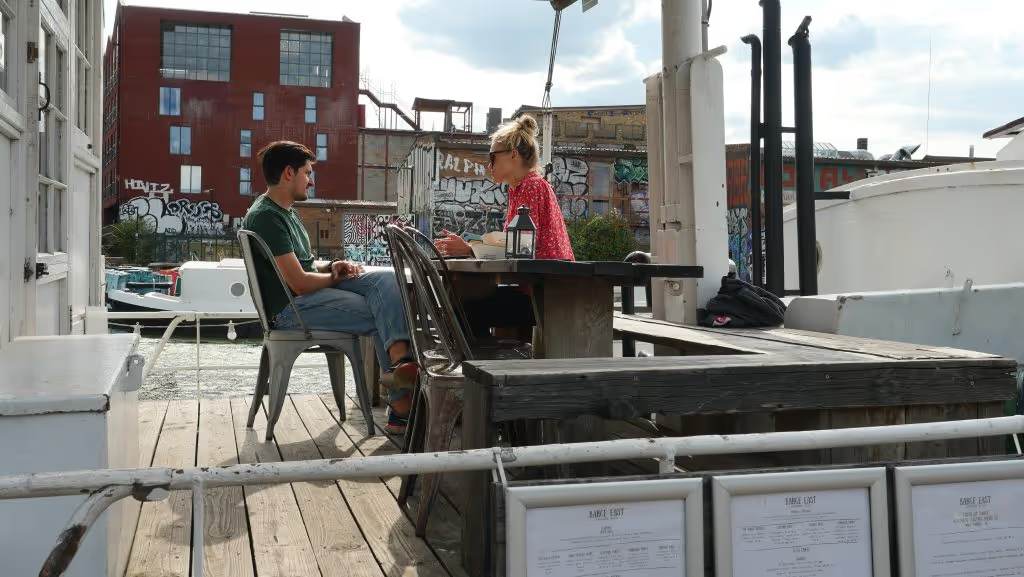
Sustainability, high quality products and of course community involvement. We are very focused on working with the neighborhood and with the community around us. That's what made us what we are today. So we are very thankful to the community and we try to give back as much as we can.
It’s practical. It is good food that will satisfy your appetite while remaining practical for the environment, as we use every part of the ingredients and try to use as much as possible food that is grown on-site - here in our garden.
We would like to bring this idea of a floating casual fine dining restaurant to different locations, and expand what we have created here into other parts of London. While recreating the community involvement and the sustainability practices we have found here in Hackney Wick.
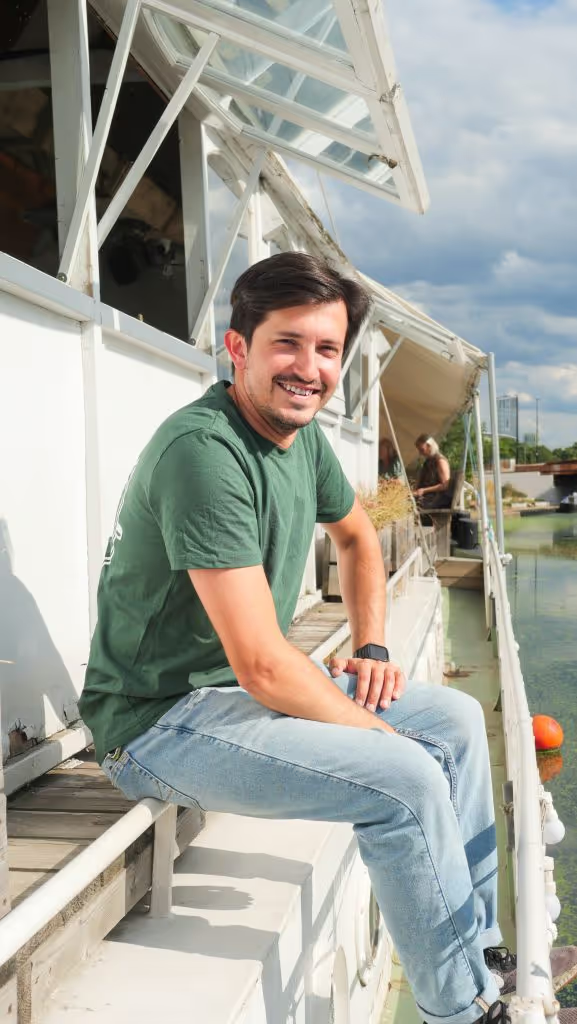
Stefano has been an integral part of the team for several years. Originally from a small city in the heart of Italy, Stefano brings his Italian culinary heritage and love for sustainability to the forefront of Barge East's menu. He’s one of six children and wanted to work with cars growing up because of his mechanic father, but as the youngest, he spent a lot of time with his mother in the kitchen, who is a chef and picked up his skills from her. He attended culinary school in Italy, where he worked in various restaurants before moving to London.After completing culinary school and working in different restaurants in Italy, Stefano decided to come to London where he came across Barge East and within months of living here started working for B.E and driving their sustainable initiatives.
Sustainability is at the core of what we do here at Barge East. Starting from the barge itself, it’s a Dutch barge that has been fully refurbished using materials that were once waste. So from the place we are sitting on to the food we grow, serve and eat to the packaging and we now use - we try to be as sustainable as possible and encourage others around us to do the same.
One of our sustainable initiatives, for instance, has been to completely remove the use of cling film in the business. We do not use it at all anymore, we also reduced the use of plastic gloves by 90% and we are planning to completely remove their use by next year.
We also compost as much as possible and work with a company that collects all of our compost. But most importantly we try to work and collaborate only with businesses that are sustainable like us, even challenging suppliers to be sustainable.

"I think this is well rewarded when you see the customer's reaction to sustainability. When you share a story that it’s worth telling the customers get so involved and excited with what you do."
No, it’s actually not that hard. In most cases, you just need to ask them - by showing your interest in sustainability and sustainable practices you encourage them to join the movement. And this is the direction the market is taking, unfortunately still too slowly in my opinion - as sustainability should not be a movement but common sense.
Barge East’s commitment to the environment extends beyond its culinary practices and permeates every aspect of its business, which perfectly showcases what can be achieved when passion and purpose align. Even if challenging and costly at times they decide to stick by sustainable choices.
It's very challenging because sustainability can be expensive, we had a shock when we started removing all our plastic usage, but every time that we need to gather new practices and products we try to look at the big picture, to see if they fit with what we want to achieve.
Yes, it's definitely more challenging. And yes, it requires a lot of more hours going into it. So an hour, of course, is a cost for the business. But I think this is well rewarded when you see the customer's reaction to sustainability. When you share a story that it’s worth telling the customers get so involved and excited with what you do.
Yes, it has been very successful. When it comes to the casual fine dining restaurant part of the business, one of the reasons customers come through the door is for the sustainability aspect. I think it’s something that is always well received, customers understand our choices like why we have started using Notpla coated boxes.
Yes, they are - but these solutions have to be introduced with context. There always needs to be an explanation, and I think that is something that we do well. Especially here in London.So it’s quite easy for our customers to get the story and enjoy the product.
Being located across the bridge and in a community that is centred on collaboration and sustainability, the relationship between us here at Notpla and Barge East feels organic. The values of Barge East go hand-in-hand with what we are trying to achieve.
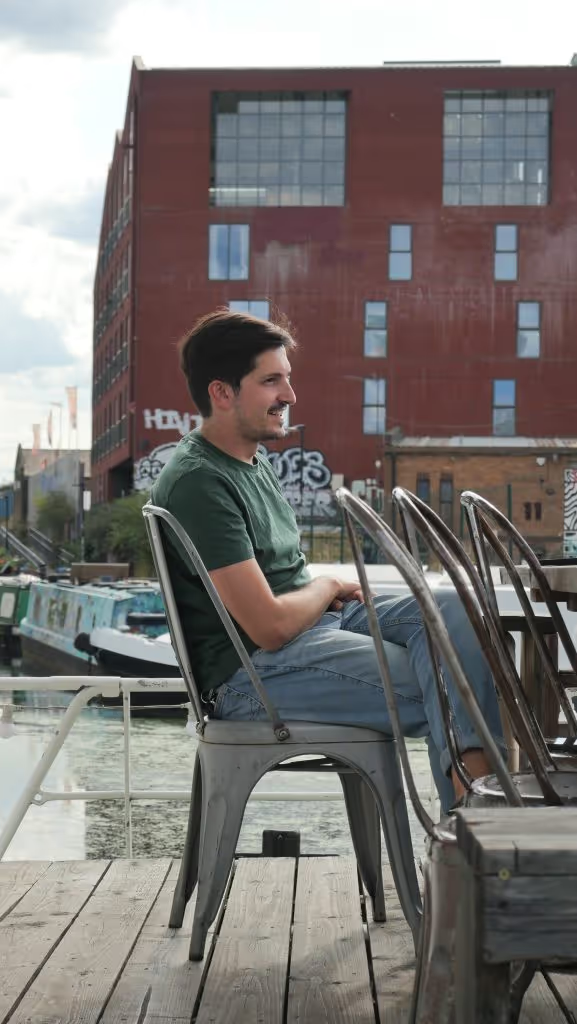
I used to work for Chef Simon Rogen, who owns a sustainable farm in the Lake District named 'our farm'. He is a strong proponent of sustainable practices, which greatly inspired me. Another source of inspiration is Silo restaurant, of course, located right here in Hackney Wick. I had the pleasure to meet Douglas, the chef and owner, quite some time ago and we are constantly talking about new things and new ideas he's having. It was a very good addition to this area, to our community in Hackney Wick, and to London in general.
It's very hard to say, especially right now because we change our menus regularly. From our current menu, I would say the chocolate mille-feuille with our grown garden rhubarb. That's something definitely nice that stands out massively especially because we collaborate with very sustainable companies such as champions of chocolate farming that are paying fair trade and provide traceability of how the chocolate has been made. It’s great and reflects well what we do here at Barge East.
Barge East offers more than just a dining experience; it's a journey into sustainable and conscious eating. With their farm-to-table philosophy, composting initiatives and use of our packaging, they are leading the way in creating a more environmentally friendly hospitality industry. So, if you're looking for a unique and sustainable dining experience, make sure to visit Barge East and indulge in their dishes while knowing that you're supporting another business that truly cares about our planet.
Keep up with Barge East here.
%20(1).avif) From student idea to sustainable solution: Earthshot Prize-winner Notpla returns to Imperial College London
From student idea to sustainable solution: Earthshot Prize-winner Notpla returns to Imperial College London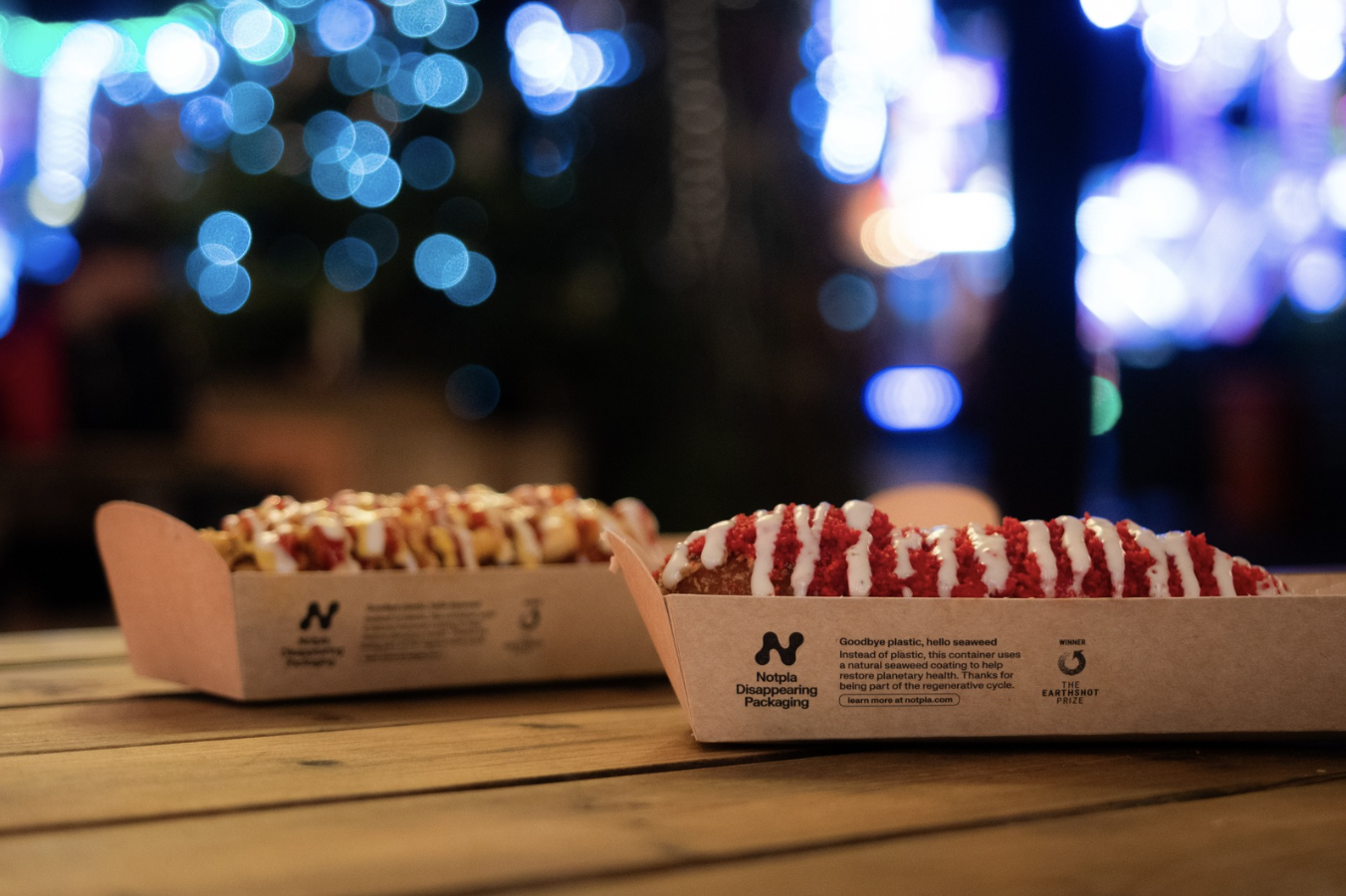 How Peppermint and Notpla redefined sustainability at Winter Wonderland
How Peppermint and Notpla redefined sustainability at Winter Wonderland.avif) Wembley Stadium partners with Notpla and Delaware North to advance sustainable packaging in live music
Wembley Stadium partners with Notpla and Delaware North to advance sustainable packaging in live music